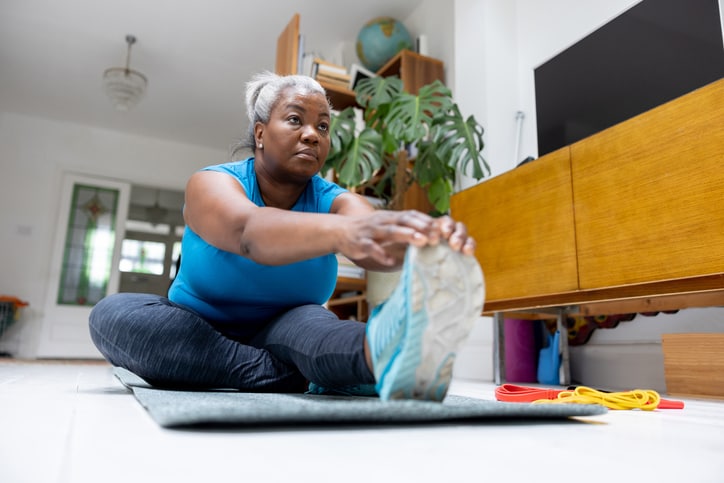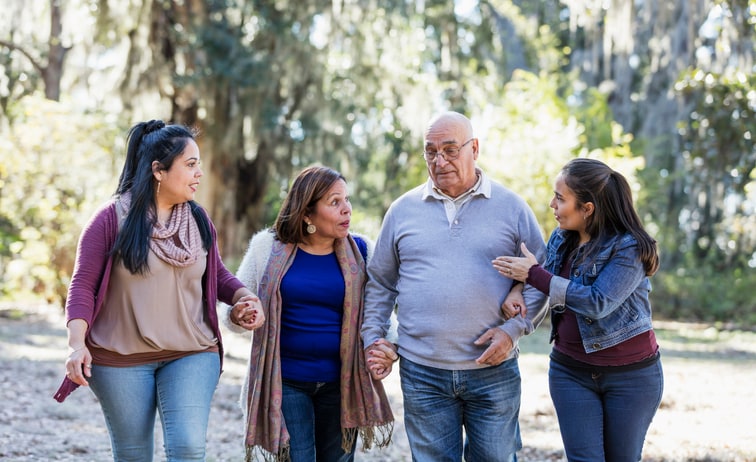By Liz O’Donnell
After my mother died, I was racked with guilt over the amount of time I spent, or rather didn’t, with my father. He was a grieving widower who had recently relocated to an assisted living community, and he was lonely. I “only” visited him one night a week plus Saturdays. Clearly I was a bad daughter, right? I made time for my job, my children, my husband, and even my friends on occasion. “I should be spending that time with him,” I would tell myself. What I didn’t understand then, was that while the guilt I felt was real, I was actually choosing to feel it. All I knew at the time, was that I felt conflicted about how I spent my time.
Psych Central, the mental health social network, breaks guilt down into two categories: true and false. True guilt has a purpose. It is the way we feel when we violate our moral code and perhaps harm another. It serves as reminder to us of what is right and wrong and usually leads us to make amends when necessary. False guilt, on the other hand and according to Psych Central, is a “tendency to feel guilty even though you have not violated your values.” And often it leads people to, “avoid doing things for yourself, even though they take care of others.” Hello caregiver!
I was certainly not violating my idea of right and wrong when I made time for my career, my kids, and myself, so why then did I feel so lousy? The answer, I eventually realized, is that I chose to focus on what I wasn’t doing, instead of what I was.
I can hear the comments now: “You think I choose to feel this way?” “You think I like feeling conflicted and stressed all of the time?” Of course not. I didn’t. Guilt may not be something we choose consciously or actively, but ultimately, we do choose it. And here’s the great news about choice – we can make a different one and we can choose something that feels better than guilt. And that’s what I eventually did. I chose to focus on what I was doing – and doing well, instead of focusing on what I thought I should be doing better. Every night before I went to bed, I reminded myself of all that I did – gone to work so that I could provide for my family, taken time for myself so I could be a better caregiver, made time for my kids or a friend or my father. When my thoughts started to shift to what I hadn’t done that day, I made a conscious decision to replace them with positive thoughts. I made an active decision to stop choosing guilt over feeling good.
Cynthia Holmes, a 57 year-old woman from New York who cared for her mother for five years, made a similar choice. “I made a conscious effort to not carry guilt as my mom’s sole family caregiver over the five years she was in a nursing home,” Holmes says. “In the first year or so, I felt guilt over not being able to safely care for my mom in my own home.” Acerbating her guilt was the fact that Holmes had promised her father before he passed that she would, “take good care” of her mother. “I had to learn a new definition of good and sometimes that meant something could be good enough or good enough for now,” she says.
Holmes also felt guilty about working while caring. “I felt guilt over the shift of my full attention and energy at work. Having less of me to give to my job because I visited mom every day somehow didn’t feel right. My husband reassured me that I shouldn’t feel guilty. He would tell me that the new me at work, in my new normal, was still running circles around everyone else at work. Whether it was true or not, I loved hearing that.”
It was a trip to the emergency room because she wasn’t feeling well that led Holmes to stop choosing guilt. “I had to make drastic changes. No more guilt. No more guilt-driven overachieving at work, at the nursing home or at home. If I’d guilted myself into a permanent disability or death, then who’d take care of mom? The best, guilt-free me was a far better caregiver than the guilt-ridden me for myself, my husband and of course, for my mom.”
Josie Zohny who is also a New York-based caregiver is working to choose differently. Zohny cares for her 70-year old mother who has multiple sclerosis. “I feel guilty that I work and don’t live with my mother,” she says. “I have to work to be able to hire outside help for her because she doesn’t feel comfortable with me handling personal care.” So Zohny is working at thinking differently. “I remind myself that, ultimately, I owe it to myself to have as much of my own life and career as possible, because some day it’s just going to be me and if I haven’t built up my career and social circle, I’ll be in trouble. I recently started making a conscious choice to do things that make me happy and distract me from all of the responsibilities I face.”
If you too struggle with caregiver guilt, here are three strategies to help you choose differently:
Don’t try to be perfect. When we strive to be the perfect caregiver, the perfect worker, the perfect spouse and parent, we set ourselves up for failure, and that sense of failure leads to guilt. Cynthia Holmes chose good enough over perfect because she realized that caregiving was just one of her many responsibilities and there was no perfect way to do it.
Don’t use the word “should.” Guilt stems from focusing on what we think we should be doing instead of focusing on what we actually are doing. Josie Zohny thought she should live with her mother and care for her full time. But that was not realistic as she needed to earn a living. Focus on what needs to be done as a caregiver, not on what you think caregiving should look like.
Do make an active choice to replace guilt with a better feeling. Guilt is a powerful emotion and it may take some time to combat your negative feelings. Practice telling yourself what you are doing well every night and eventually the guilt will subside. As you focus on all that you are doing well, you will start to choose feeling good.
Liz O’Donnell is the founder of Working Daughter and the author of Working Daughter: A Guide To Caring For your Aging Parents While Making A Living.For caregiving support, information and resources contact a Senior Care Advisor at Care.com. We are master’s-level social workers specializing in adult and senior care. Call us today at (855) 781-1303 x3 or email questions to careplanning@care.com





